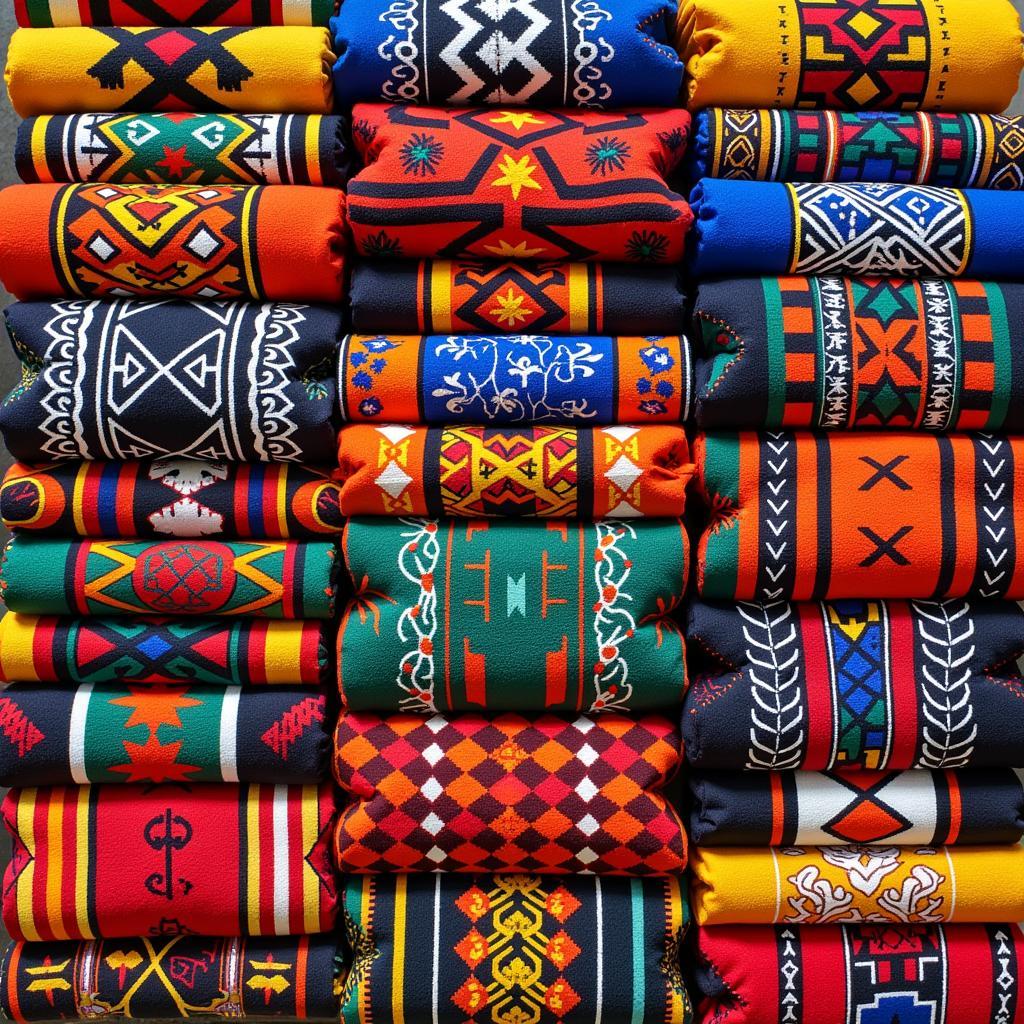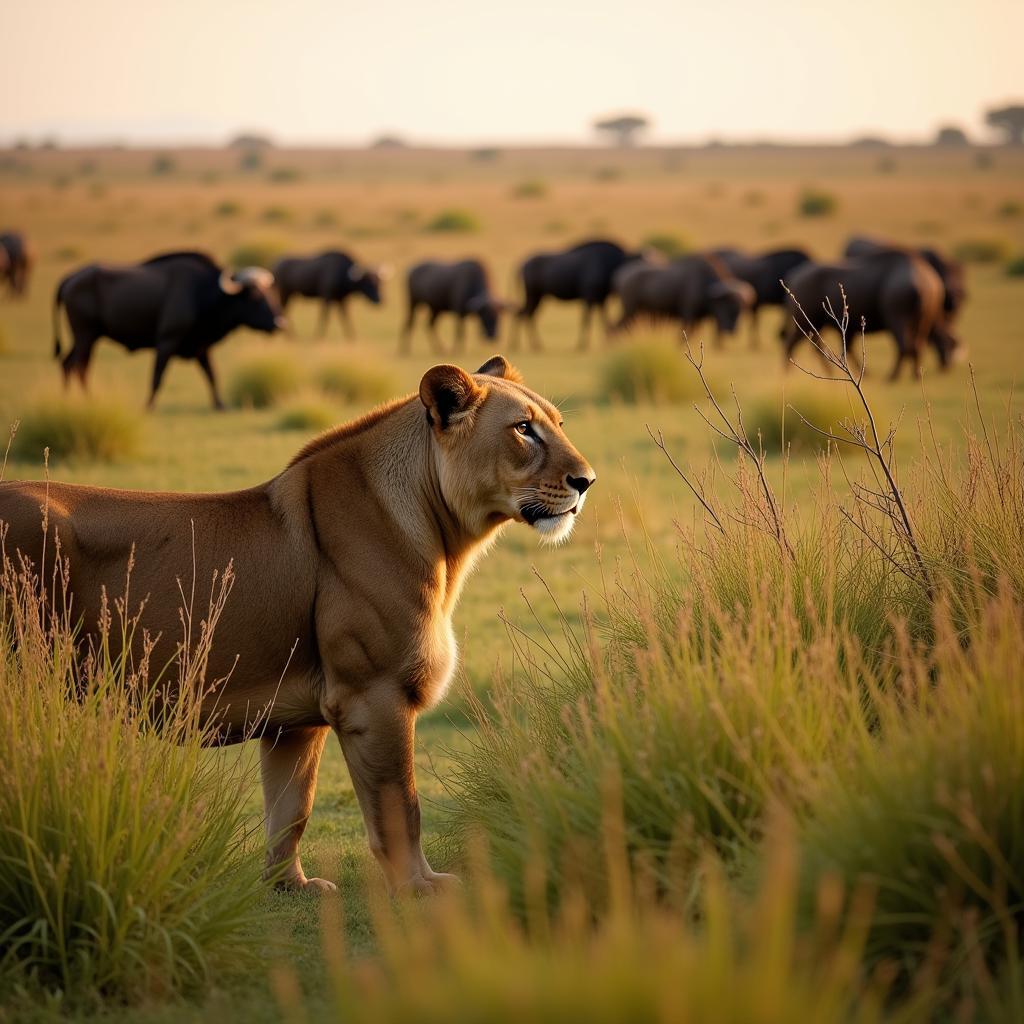Exploring African Culture in Brazil
African Culture In Brazil is a vibrant and deeply ingrained aspect of the nation’s identity. From the rhythms of samba to the flavors of feijoada, the influence of the African diaspora is undeniable. This article delves into the rich tapestry of African traditions that have shaped Brazilian culture, exploring the history, music, religion, and everyday life of Afro-Brazilians. african diaspora in brazil
The Historical Roots of African Culture in Brazil
The transatlantic slave trade brought millions of Africans to Brazil, primarily from West and Central Africa. These forced migrants brought with them their cultural heritage, which despite the brutal conditions of slavery, managed to survive and flourish. Their languages, religions, musical traditions, and culinary practices became interwoven with the existing indigenous and European cultures, creating the unique blend that defines Brazil today.
What languages did enslaved Africans speak in Brazil? Many West African languages influenced the development of Brazilian Portuguese, including Yoruba, Fon, and Ewe. These linguistic contributions can be seen in vocabulary, pronunciation, and grammatical structures.
Music and Dance: The Rhythmic Heart of African Culture in Brazil
Music and dance are arguably the most visible expressions of African culture in Brazil. Samba, the quintessential Brazilian musical genre, has its roots in African rhythms and dance forms. Capoeira, a martial art disguised as dance, also originated from African traditions, blending elements of fighting, acrobatics, and music. Candomblé ceremonies, deeply rooted in Yoruba traditions, often feature vibrant drumming and dancing as a form of spiritual expression.
Religion and Spirituality: African Faiths in Brazil
The religious landscape of Brazil is deeply influenced by African spiritual traditions. Candomblé and Umbanda, two prominent Afro-Brazilian religions, incorporate elements of Yoruba, Fon, and Bantu beliefs. These religions emphasize the connection with nature, ancestor veneration, and the worship of orixás, deities associated with various forces of nature.
Culinary Influences: A Taste of Africa in Brazil
African culinary traditions have left an indelible mark on Brazilian cuisine. Feijoada, a hearty stew made with black beans, various cuts of pork, and spices, is considered Brazil’s national dish and has its origins in African cooking. Acarajé, a fritter made from black-eyed peas and served with shrimp and vatapá, is another popular dish with African roots. african ground textile
African Culture in Brazilian Everyday Life
Beyond the obvious expressions in music, religion, and food, African culture permeates everyday life in Brazil. From storytelling traditions to hairstyles and fashion, the influence of the African diaspora is undeniable. The use of proverbs, the emphasis on community, and the importance of oral traditions are all testaments to the enduring legacy of African culture.
Dr. Maria Oliveira, a leading scholar of Afro-Brazilian studies, notes, “African culture is not just a historical artifact in Brazil. It is a living, breathing force that continues to shape the nation’s identity.”
How has African Culture Impacted Brazilian Art?
African aesthetics and symbolism have significantly influenced Brazilian art, particularly in sculpture, painting, and crafts. Many artists draw inspiration from African masks, textiles, and religious iconography, creating works that celebrate Afro-Brazilian identity and heritage. african king graphics
Professor Carlos Santos, an expert in Brazilian art history, adds, “The vibrant colors, bold patterns, and symbolic representations found in much of Brazilian art are a direct reflection of African artistic traditions.” is brazil african country
Conclusion
African culture in Brazil is a complex and multifaceted tapestry woven from centuries of resilience, adaptation, and cultural exchange. From the vibrant rhythms of samba to the spiritual depth of Candomblé, the influence of the African diaspora is an integral part of what makes Brazil so unique. Exploring this rich cultural heritage is essential for understanding the nation’s identity and appreciating the enduring contributions of Afro-Brazilians. african diaspora culture
FAQ
- What is the most popular Afro-Brazilian religion? Candomblé and Umbanda are two of the most prominent.
- What is feijoada? Brazil’s national dish, a stew with black beans, pork, and spices.
- What is capoeira? An Afro-Brazilian martial art disguised as dance.
- What are orixás? Deities worshipped in Afro-Brazilian religions like Candomblé.
- What is acarajé? A fritter made from black-eyed peas, a popular Afro-Brazilian dish.
- What are some other examples of African influence in Brazilian culture? Storytelling, hairstyles, and the use of proverbs.
- Where can I learn more about African culture in Brazil? Museums, cultural centers, and academic resources are good places to start.
Need support? Contact us 24/7:
Phone: +255768904061
Email: kaka.mag@gmail.com
Address: Mbarali DC Mawindi, Kangaga, Tanzania.


